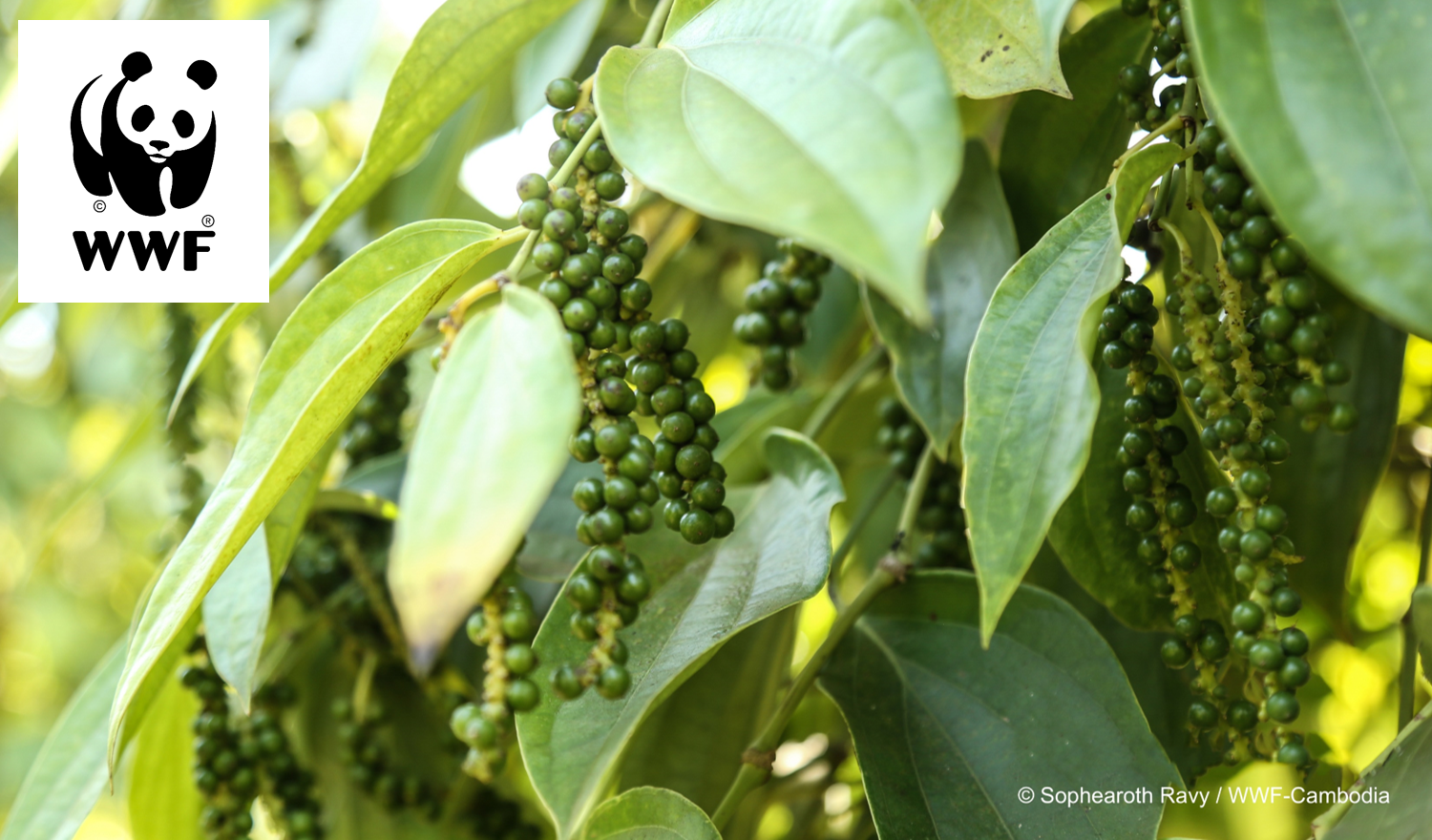Nedspice in collaboration with World Wild Fund For Nature (WWF Cambodia) trains new black pepper farmers in Cambodia on the use of living trees to help save natural forest in and around their communities.
In Cambodia, the pepper market prices rose up swiftly in 2015. This event has led to a surge of farmers moving into black pepper production. As black pepper vines grow on supporting trees, poles or trellises, the new farmers were quick in taking down trees from nearby forests to serve as supporting poles. Such uncontrolled pepper plantation practices have had serious effects on Cambodia’s natural forests and ecosystems in the Eastern Plains. Recognising the urgent need to protect the natural forests from disappearing, Nedspice joined forces with WWF Cambodia in 2018 to embark on their first environmentally-friendly pepper production practice, introducing the use of living trees as the support for pepper vines.
Nedspice’ technical know-how and experience with farmer trainings in neighbouring Vietnam on good agricultural practices and the use of living trees was used to train farmers from Mondulkiri province in north-eastern Cambodia, where the WWF’s supported Eastern Plains Landscape lies. The partnership yielded positive result with the beneficiaries describing the trainings as very beneficial. The success of the pilot initiative encouraged both partners to expand.
In 2021 Nedspice decided to continue the cooperation with WWF Cambodia by training 60 new black pepper farmers from Cambodia. The trainings included theory as well as practical in-field demonstrations. Using living trees instead of ‘dead support’ will bring a series of benefits to farmers and to nature, such as natural shade to pepper vines, improved soil quality and – most importantly – no further deforestation.
The next farmer training is planned for August 2021, when farmers will receive seedlings and other materials supporting their transition to sustainable black pepper cultivation.
The cooperation between Nedspice and WWF Cambodia is part of a larger WWF project funded by the Germany Federal Ministry for Economic Cooperation and Developments (BMZ) that aims to support and scale-up sustainable and forest-friendly pepper cultivation by local communities in the Mondulkiri Province in Cambodia.
